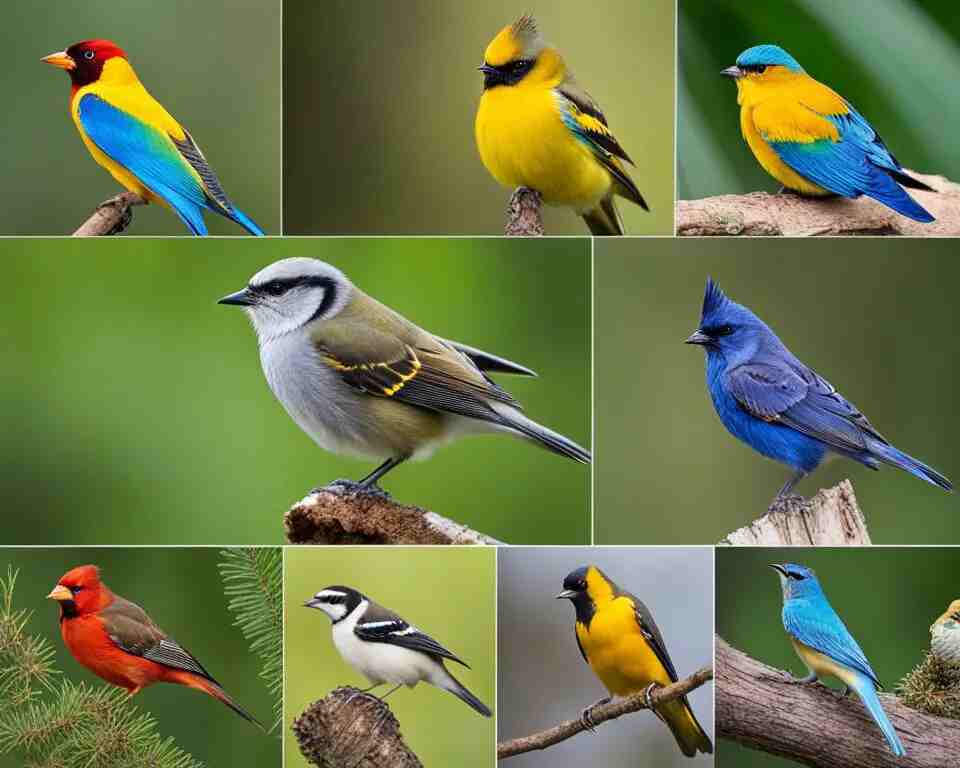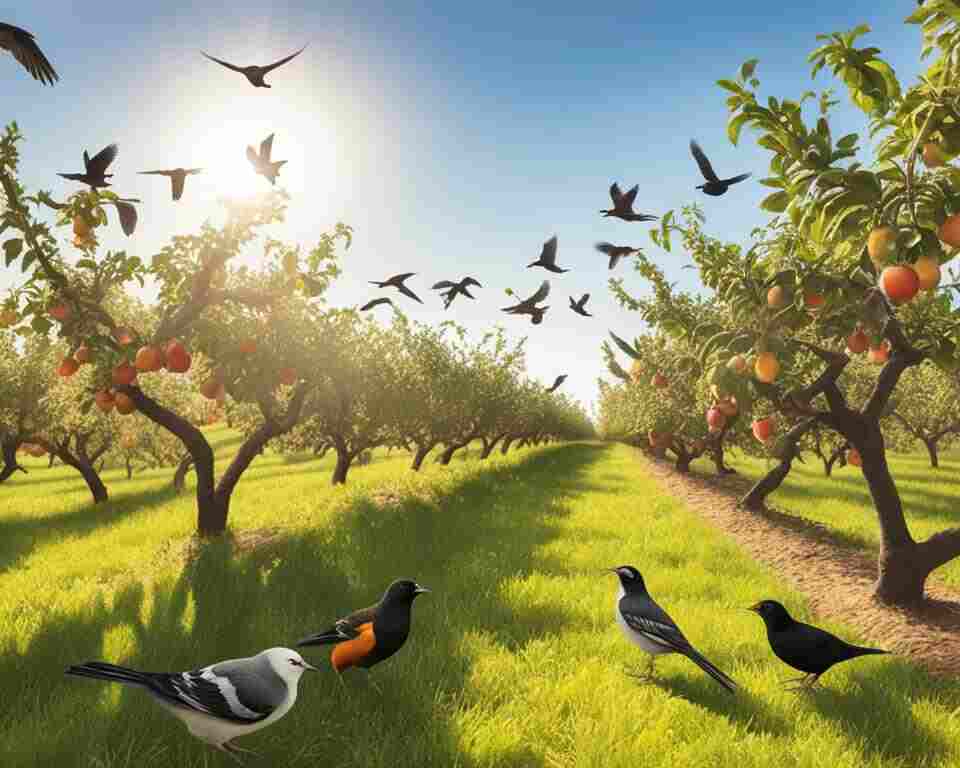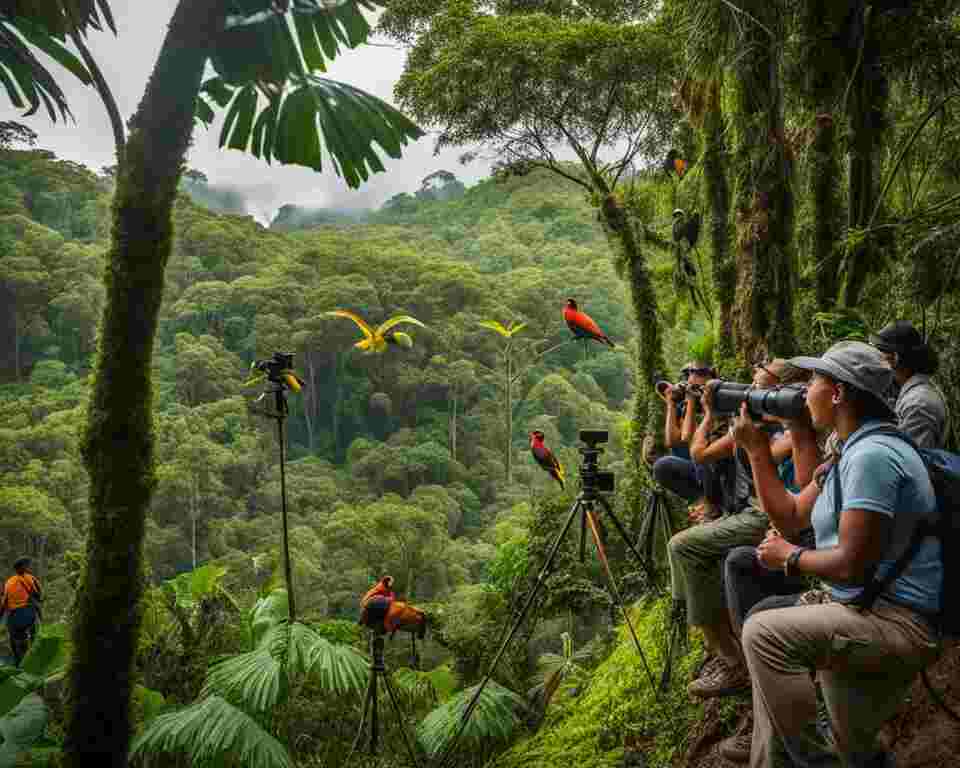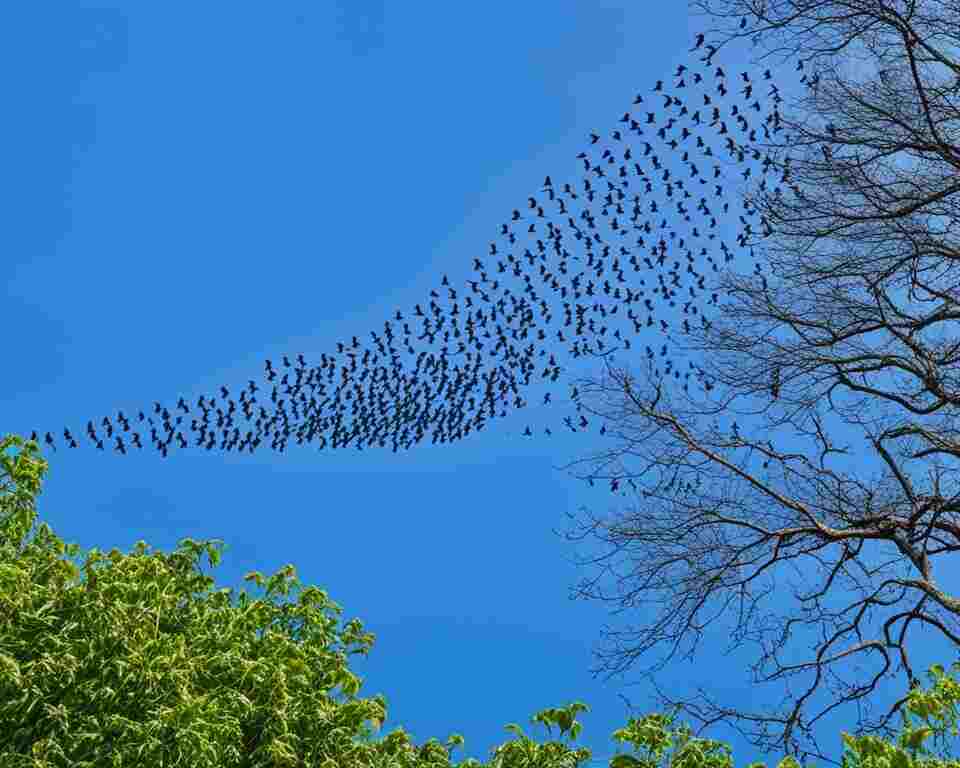Birds are often admired for their beauty and captivating songs, but their significance goes far beyond just aesthetics. These feathered creatures play a crucial role in the health and sustainability of our environment. From pollination to pest control, birds provide essential ecosystem services that benefit both wildlife and humans.
However, are birds good for the environment? Understanding the eco benefits of birds is essential for appreciating their importance and promoting avian conservation. By examining the impact of birds on the environment, we can uncover their positive contributions and work towards ensuring a healthier ecosystem for future generations.
Table of Contents
- 1 Key Takeaways:
- 2 Understanding the Ecological Impact of Birds
- 3 Natural Pest Control: Birds as Ecological Balancers
- 4 Pollination and Seed Dispersal: Birds in Plant Reproduction
- 5 Are Birds Good for the Environment: Analyzing Birds’ Ecosystem Services
- 6 Cleaning Up and Recycling: Birds as Nature’s Sanitation Workers
- 7 The Economic Benefits of Birds Through Eco-Tourism and Employment
- 8 Birds, Biodiversity and Environmental Health Indicators
- 9 Conclusion
- 10 Source Links
- 11 Author
Key Takeaways:
- Birds play a vital role in the functioning of ecosystems.
- Conserving birds helps maintain a balanced environment.
- Birds contribute to the health and sustainability of ecosystems.
- Understanding the eco benefits of birds helps us appreciate their importance.
- Examining the impact of birds on the environment reveals their positive contributions.

Understanding the Ecological Impact of Birds
Birds play a crucial role in maintaining the balance and functioning of ecosystems. Their ecological impact extends beyond their graceful flights and melodious songs, as they contribute to various essential processes that support the health and sustainability of the environment. By understanding the intricate relationships between birds and their habitats, we can appreciate their significance in ecosystem functioning.
The Role of Birds in Ecosystem Functioning
Birds contribute to ecosystem functioning through their involvement in key ecological processes. They play a vital role in nutrient cycling by consuming fruits, seeds, and insects, and subsequently dispersing their waste in different locations. This dispersal aids the distribution of nutrients, facilitating the growth and regeneration of plants across ecosystems.
Furthermore, birds serve as efficient pollinators, transferring pollen between flowers as they forage for nectar. This process promotes the reproduction of flowering plants and the production of fruits and seeds. The diversity of avian species allows for extensive pollination networks, ensuring the survival and genetic diversity of numerous plant species.
Seed dispersal is another essential ecological service provided by birds. As they consume fruits and seeds, birds inadvertently transport these propagules to new areas, aiding in the colonization and regeneration of plant species. This dispersal increases plant diversity and helps establish resilient ecosystems.
How Avian Species Contribute to Human Health and Economy
Beyond their ecological contributions, avian species have significant implications for human health and the economy. Spending time in natural environments that are rich in birdlife has been found to have positive effects on mental well-being, reducing stress and promoting relaxation. Bird-watching and bird-listening activities have become popular recreational pursuits, connecting people with nature and providing a source of joy and inspiration.
The economic value of birds is also notable. Bird-watching and eco-tourism attract tourists, creating opportunities for local economies to thrive. Travelers interested in observing avian species contribute to local businesses, such as accommodations, food services, and tour operators. Moreover, research studies and conservation initiatives related to avian species provide employment opportunities for scientists, conservationists, and nature educators, further bolstering the economy.
Understanding the ecological impact of birds goes beyond acknowledging their aesthetic appeal. The intricate interactions between birds and their environment, along with their contributions to ecosystem functioning, human health, and the economy, emphasize the importance of avian conservation and the preservation of their habitats.
Natural Pest Control: Birds as Ecological Balancers
Birds play a crucial role in controlling pest populations in agricultural and natural ecosystems. Their presence helps to keep pest numbers in check, reducing the need for chemical pesticides and promoting sustainable practices in pest management.
Birds in Agriculture: Guardians Against Pests
When it comes to agriculture, birds act as natural guardians against pests. They prey on insects, rodents, and other small animals that can damage crops, providing an effective and eco-friendly pest control solution. By feeding on pests, birds help to protect crops and preserve their quality, benefiting farmers and supporting the sustainability of agricultural production.
Not only do birds minimize pest damage to crops, but they also contribute to overall ecosystem health in agricultural landscapes. By maintaining a balance in pest populations, birds help to prevent outbreaks and reduce the risk of crop failures. Their presence in agricultural fields can create a more harmonious and biodiverse environment, positively influencing the overall productivity and resilience of agricultural systems.
Case Studies: Economic Value of Avian Pest Control
The economic value of avian pest control has been demonstrated through various case studies. These studies have shown that implementing bird-based pest control strategies can lead to significant cost savings for farmers by reducing the need for chemical pesticide applications.
In addition to cost savings, bird-based pest control can also contribute to increased crop yields and reduced crop losses. By effectively managing pest populations, birds help to preserve the quality and quantity of harvests, translating into higher profits for farmers.
The economic benefits of avian pest control extend beyond individual farms. A healthier and more sustainable agricultural sector supports local economies by ensuring a stable food supply, creating job opportunities, and contributing to overall economic growth.
Ultimately, the economic value of birds as natural pest controllers highlights the advantages of embracing sustainable and environmentally friendly practices in agriculture. By harnessing the power of birds, farmers can achieve effective pest control while minimizing negative impacts on the environment and human health.

Pollination and Seed Dispersal: Birds in Plant Reproduction
Birds play a vital role in the reproduction of plants through pollination and seed dispersal. These ecological services provided by avian species are essential for the production of food crops and medicinal plants, as well as for the regeneration of ecosystems and the maintenance of biodiversity.
The Significance of Bird Pollinators in Food and Medicine
Birds serve as important pollinators for a wide range of plants. They play a crucial role in transferring pollen from the male reproductive parts of flowers to the female reproductive parts, facilitating fertilization and the production of seeds and fruits. This process is essential for the production of various food crops, contributing to our agricultural systems and food security.
In addition to their role in food production, bird pollinators also contribute to the production of medicinal plants. Many medicinal herbs and plants rely on avian pollination for reproduction, ensuring the availability of important resources for traditional and modern medicine.
Understanding the significance of bird pollinators in food and medicine emphasizes the importance of protecting and conserving these avian species and their habitats.
Avian-aided Regeneration of Ecosystems Through Seed Dispersal
Birds are also crucial in the dispersal of seeds, aiding in the regeneration and diversity of ecosystems. By consuming fruits and seeds from plants, birds transport and deposit seeds in new locations, allowing for their germination and the establishment of new plants.
This avian-aided seed dispersal contributes to the maintenance of biodiversity, as it helps plants colonize new areas and adapt to changing environments. Birds play a significant role in shaping the composition and structure of plant communities, ensuring the resilience and sustainability of ecosystems.
Understanding the role of bird pollinators and seed dispersers highlights the importance of conserving bird populations and their habitats for the long-term health and functioning of ecosystems.
Are Birds Good for the Environment: Analyzing Birds’ Ecosystem Services
Analyzing the ecosystem services provided by birds helps determine their overall impact on the environment. Birds play a vital role in maintaining the ecological balance and functioning of ecosystems. They contribute to crucial processes such as pollination, seed dispersal, and natural pest control.

The presence of birds in ecosystems supports overall biodiversity, as they help in the reproduction and regeneration of plant species. Birds act as pollinators, transferring pollen from one flower to another, which is essential for the production of fruits, vegetables, and other crops. This process ensures the availability of food for both humans and wildlife.
Furthermore, birds aid in the dispersal of seeds, allowing plants to colonize new areas and maintain genetic diversity. By consuming fruits and berries and later excreting the seeds, birds help in the regeneration of forests and other habitats.
Birds also provide natural pest control services by feeding on insects and other small animals that can become harmful pests. This reduces the need for chemical pesticides, promoting sustainable and environmentally friendly practices in agriculture and natural ecosystems.
Evaluating the specific role of birds in different ecosystems helps us understand their importance in maintaining environmental health. By recognizing and appreciating the ecosystem services provided by birds, we can better conserve and protect these valuable avian species, contributing to the overall well-being of the environment.
Cleaning Up and Recycling: Birds as Nature’s Sanitation Workers
Birds play a vital role in maintaining the cleanliness of the natural environment. As nature’s sanitation workers, they contribute to the cleaning up and recycling of organic matter, ensuring a healthier ecosystem.
One way birds fulfill this role is by scavenging carcasses. When an animal dies, birds quickly dispose of the carcass, helping to reduce the spread of diseases and preventing the accumulation of decaying matter. This swift removal of carcasses is particularly important for maintaining the overall health and hygiene of the environment.
Birds like vultures deserve special recognition for their exceptional efficiency in recycling nutrients. Vultures have specialized digestive systems that allow them to consume carrion that would be harmful to other animals. By feeding on carcasses, vultures aid in the decomposition process and efficiently recycle nutrients back into the environment.
The recognition of birds as nature’s sanitation workers emphasizes their valuable contributions to environmental cleanliness and the overall health of ecosystems.
The Economic Benefits of Birds Through Eco-Tourism and Employment
Birds offer not only environmental benefits but also significant economic advantages through eco-tourism and employment opportunities. Their presence attracts wildlife watchers and birding enthusiasts, contributing to the local economy.
Wildlife Watching: A Lucrative Outdoor Activity
Wildlife watching, including bird watching, has become a popular outdoor activity, attracting a large number of nature enthusiasts. Birding tourism generates revenue through various means, such as entrance fees to bird sanctuaries, guided birding tours, and photography workshops. These activities create income streams for local communities and businesses, including travel agencies, hotels, restaurants, and souvenir shops.
Furthermore, birding festivals and events, organized around the migration or breeding patterns of certain bird species, draw tourists from far and wide. These festivals provide opportunities to engage with the local culture, enjoy bird-watching excursions, and showcase bird-related art and crafts. As a result, these events not only stimulate local economies but also foster cultural exchange and community engagement.
Eco-tourists who visit birding destinations often contribute to the local economy beyond bird-watching activities. They may engage in other outdoor pursuits, such as hiking, nature walks, or water-based activities. These additional recreational opportunities further support the growth of local businesses, catering to the diverse needs of eco-tourists.
The Effects of Birding on Local Economies and Job Creation
The economic benefits of birding and eco-tourism extend beyond revenue generation to job creation. The demand for birding guides, naturalists, and field researchers provides employment opportunities for local individuals with expertise in avian biology and wildlife conservation.
Local communities may also benefit from sustainable bird-related industries. For example, bird feed production and sales, birding equipment manufacturing, and bird-friendly product development can create employment opportunities and stimulate economic growth. These industries rely on the support of birding enthusiasts and conservation-minded individuals, further reinforcing the connection between bird conservation and economic prosperity.
The economic benefits of birding and eco-tourism provide incentives for communities to protect and invest in bird habitats. By recognizing the value of birds as economic contributors, local economies are encouraged to promote avian conservation and ensure the long-term sustainability of bird populations.

Birds, Biodiversity and Environmental Health Indicators
As we look deeper into the intricate web of ecosystems, it becomes evident that birds hold a vital position in biodiversity conservation. Birds serve as essential environmental health indicators, reflecting the overall well-being of our natural habitats. Their presence or absence can signal significant changes and provide valuable insights into the quality of ecosystems.
Biodiversity Conservation: The Importance of Avian Species
Birds represent a diverse array of species, each with unique adaptations and ecological roles. Their presence contributes to the richness and stability of ecosystems. By conserving avian species, we safeguard the intricate relationships within ecosystems, ensuring the balance and sustainability of natural communities.
Birds as Indicators of Environmental Quality and Health
Monitoring bird populations offers a valuable window into the health of our environment. Changes in bird populations can indicate shifts in habitat quality, availability of resources, and the impact of human activities on ecosystems. By studying and understanding these indicators, we can take targeted conservation actions to safeguard environmental health and promote sustainable practices.
| Significance of Bird Indicators | Indicators of Environmental Quality | Conservation Actions |
|---|---|---|
| Bird species richness | Presence of specific bird species can indicate the overall biodiversity of an area. | Protect and restore habitats that support diverse bird populations. |
| Bird migration patterns | Changes in migration timing or routes can reflect disruptions in habitat availability or climate change. | Preserve critical stopover sites and address climate change impacts on migration routes. |
| Monitoring bird health | Health issues in bird populations can serve as early warning signs of pollution or disease outbreak. | Implement measures to reduce pollution and promote the health of ecosystems. |
| Bird breeding success | Breeding success rates can indicate habitat quality and availability of food resources. | Protect and restore breeding habitats and ensure access to sufficient food sources. |
By recognizing the pivotal role of birds as environmental health indicators, we can prioritize their conservation efforts and work towards maintaining thriving ecosystems for future generations.
Conclusion
In conclusion, birds play a vital role in environmental sustainability through their various contributions to ecosystems. From natural pest control to pollination and seed dispersal, birds have a significant impact on maintaining a balanced and healthy environment. Understanding the importance of bird conservation is crucial for safeguarding their populations and ensuring a thriving ecosystem for future generations.
By supporting bird conservation efforts, we can work towards creating a healthier ecosystem that benefits both birds and the environment. Conservation initiatives such as protecting habitats, implementing sustainable agricultural practices, and promoting avian-friendly policies can all contribute to the long-term preservation of bird populations.
As we strive for a more sustainable future, let us recognize the invaluable services provided by birds and take action to protect their habitats and populations. Through our collective efforts, we can ensure that birds continue to thrive and play their vital role in maintaining the environmental balance that sustains us all.


